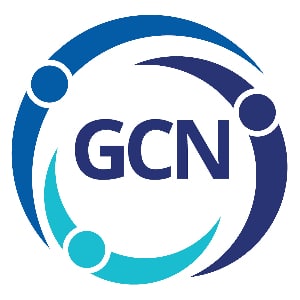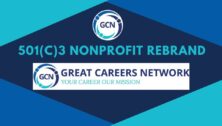STAR Interview Tips and Resources On and Off LinkedIn – Part 1


Need interview tips and resources for an upcoming opportunity to keep your skills sharp? The world of job search is ever-changing, especially with AI.
In today’s competitive job market, acing your interview is crucial to landing your dream position. This comprehensive guide becomes an invaluable tool. It will walk you through essential steps to prepare for and excel in your next job interview.
Pre-Interview Preparation
The key to a successful interview lies in thorough preparation. Before you step into the interview room, make sure to:
- Research the company: Familiarize yourself with the organization’s history, values, recent news, and industry position. This knowledge will demonstrate your genuine interest and help you tailor your responses to align with the company’s goals.
- Prepare a list of references: Have a list of professional references ready to provide upon request. Choose individuals who can speak to your skills, work ethic, and character.
What to Bring to the Interview
On the day of your interview, arrive prepared with the following items:
- Notepad and pen: Use these to jot down important information and the names of your interviewers (unless they provide business cards).
- Copies of your resume: Bring several printed copies of your most up-to-date resume.
- A positive attitude: Your enthusiasm and optimism can make a lasting impression.
- Professional attire: Dress to impress, ensuring your outfit is appropriate for the company culture and position you’re applying for.
- Confident body language: Pay attention to your posture, tone of voice, eye contact, and other non-verbal cues that convey confidence and engagement.
- Polished communication skills: Practice articulating your thoughts clearly and concisely.
- A genuine smile: A warm, sincere smile can help create a positive atmosphere and build rapport with your interviewers.
Tackling “Tell Me About Yourself”
This common opening question can set the tone for the entire interview. Here’s one method on how to easily craft a compelling response:
- Review the job description and identify three key strengths you have that align with the role.
- Utilize a “thesis statement” approach that encapsulates these strengths.
- Provide detailed examples for each strength, then summarize by restating your thesis.
Understanding Behavioral Interviews
Behavioral interviews have become a cornerstone of the modern hiring process, offering employers valuable insights into a candidate’s potential fit and performance. Understanding why these interviews are crucial and how you can excel in them is key to your interview success.
The Importance of Behavioral Interviews
- Predicting Future Performance: By asking candidates to describe past experiences, behavioral interviews help employers anticipate how an individual might handle similar situations in the future. This predictive aspect is invaluable for making informed hiring decisions.
- Assessing Soft Skills: While resumes highlight qualifications and hard skills, behavioral interviews reveal crucial soft skills such as communication, problem-solving, teamwork, and adaptability. These skills are often critical determinants of success in the workplace.
- Reducing Bias: The structured nature of behavioral interviews, which focus on specific examples rather than general conversation, can help minimize unconscious biases that influence hiring decisions. This is a significant advantage of behavioral interviews, promoting fairness in the hiring process.
- Evaluating Cultural Fit: By understanding how candidates have navigated various workplace scenarios, employers can better gauge whether an individual will thrive within their company culture.
- Revealing Authenticity: The requirement for detailed, specific examples makes it challenging for candidates to rely on rehearsed or embellished answers, providing a more genuine representation of their capabilities.
- Standardizing the Process: Using consistent behavioral questions for all candidates allows for more objective comparisons between applicants, leading to fairer hiring practices.
- Uncovering Potential Red Flags: Behavioral questions can reveal how candidates handle stress, conflict, or failure, potentially highlighting issues that might not be apparent from a resume alone.
Mastering the STAR Technique
By preparing for behavioral interviews and practicing the STAR technique, you can significantly enhance your ability to provide compelling, relevant responses during the interview process, making you feel more prepared and ready.
To excel in behavioral interviews, structure your responses using the STAR method:
- Situation: Describe the context or background of the specific example you’re discussing.
- Task: Explain your role or responsibility in that situation.
- Action: Detail the steps you took to address the challenge or complete the task.
- Result: Share the outcomes of your actions using specific metrics or achievements when possible.
Example STAR Response
Question: “Tell me about a time when you had to deal with a difficult team member.”
Answer:
“In my previous role as a project manager (Situation), I was tasked with leading a cross-functional team to complete a high-priority product launch (Task). One team member consistently missed deadlines and was often confrontational in meetings, jeopardizing our timeline and team morale. To address this, I scheduled a private meeting with the individual to understand their perspective and challenges. We collaboratively developed a plan to improve communication and set realistic deadlines (Action). As a result, the team member’s performance improved significantly, and we successfully launched the product on time. This experience also led to implementing new team communication protocols that improved overall collaboration (Result).”
Using the STAR method, you provide a comprehensive, structured answer that clearly demonstrates your skills and experiences. This approach helps interviewers understand what you did, how you approached challenges, and the impact of your actions.
Preparing for behavioral interviews by reflecting on your past experiences and practicing the STAR technique will significantly enhance your ability to provide compelling, relevant responses during the interview process.
Key Steps to Prepare for Behavioral Interviews Using STAR
- Review the Job Description
- Identify key skills and qualities the employer is seeking
- Think of relevant experiences that demonstrate these skills
- Prepare Your Stories
- Brainstorm 5-10 scenarios from your past experiences that showcase your abilities
- Ensure these stories cover a range of situations (e.g., leadership, teamwork, problem-solving)
- Structure Each Story Using STAR
- Situation: Briefly describe the context (where, when, who)
- Task: Explain the challenge or goal you faced
- Action: Detail the specific steps you took
- Result: Share the positive outcome, ideally with measurable results
- Practice Your Delivery
- Rehearse your stories out loud
- Time yourself – aim for 1-2 minutes per answer
- Get feedback from friends or family if possible
- Utilize Interview Preparation Resources and Platforms
- LinkedIn – https://www.linkedin.com/interview-prep
- Mr. Simon – https://mrsimon.ai/
- Goodwill Delaware (create an account to access tools) https://goodwillcareerconnection.yournextstep.com/users/sign_up?direct=_5lIVsLhUBgQj1E1
- Watch videos Part 1, 2, and 3 of 3 https://greatcareers.org/interview-resources/
- Anticipate Common Questions
- Research typical behavioral questions in your industry
- Prepare STAR responses for these likely scenarios
- Be Ready to Adapt
- While you can’t predict every question, your prepared stories can often be tweaked to fit various questions
- Focus on Recent and Relevant Experiences
- Prioritize examples from the last 1-2 years when possible
- Choose stories most relevant to the job you’re applying for
- Be Specific and Quantify Results
- Use concrete numbers and data when describing outcomes
- Avoid generalizations – focus on your individual contributions
- Prepare Follow-up Details
- Be ready to provide additional information if the interviewer asks for more depth
- Reflect on Lessons Learned
- For each story, consider what you learned from the experience
- Be prepared to discuss how you’ve grown or what you’d do differently
By following these steps and thoroughly preparing your STAR responses, you’ll be well-equipped to handle behavioral interview questions with confidence and clarity. Remember, the key is not just to memorize answers but to internalize your experiences to discuss them naturally and adapt your responses to various questions.
Practice. Practice. Practice.
Practice is crucial in mastering the STAR technique. Consider conducting mock interviews with friends, family, or career counselors to refine your delivery and receive constructive feedback. The more comfortable you become with structuring your responses using STAR, the more effectively you’ll be able to showcase your skills and experiences during the actual interview.
Finally, remember that authenticity is key. While the STAR method provides a helpful structure, your responses should feel natural and conversational. Use this technique as a guide to organize your thoughts, but let your genuine experiences and personality shine through in your answers.
Stay tuned for Part 2 on interviewing tips next week! Because, as they say, Wait! There’s more, especially AI resources!
Did you read the article from last week? Laws Vary by State on Posting Salary Ranges for Remote Positions, So Optimize LinkedIn
NEXT STEPS
- Subscribe to my newsletter on LinkedIn™ for bright ideas on how to manage your career.
- If you need a resume or LinkedIn™ profile to get you to your next step, book a call to chat! Can’t beat a free discovery call!
- Join as a member at https://greatcareers.org/membership of the #1 business networking association on the Philadelphia Business Journal’s Book of Lists four years in a row!
- To support our charity at KeepOnSharing.com and use the referral code Career
- Follow #GreatCareersPHL
UPCOMING EVENTS
Check out our Nonprofit Events Quick List Page for More
- Sat Sep 21 – LinkedIn Part 2 of 3 Online 3-Hour Workshop
- Sun Sep 22 – Tips to Optimize Your Resume
- Mon Sep 23 – Immigrant Professionals Career Support Group
- Tue Sep 24 – LinkedIn Profile Reviews
- Wed Sep 25 – How to Figure Out What to Do Next in Life followed by Networking Introductions
- Thu Sep 26 – Career Success Group Job Seeker Accountability & Networking
- Mon Sep 30 & Tue Oct 1- GSC-SHRM Conference & Expo
Connect With Your Community
Subscribe for stories that matter!
"*" indicates required fields























